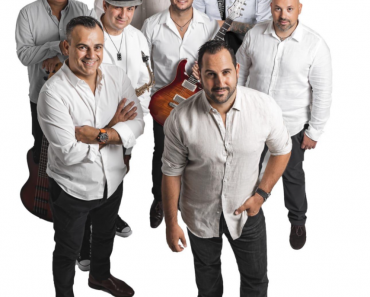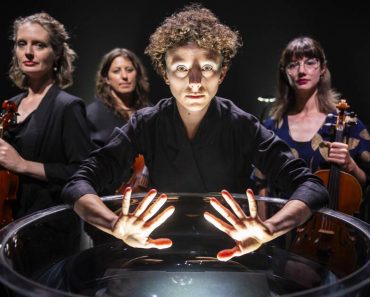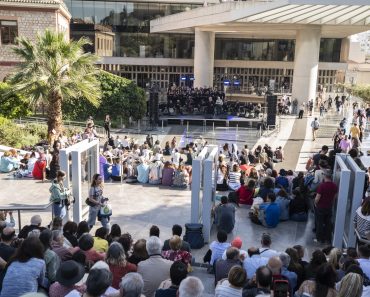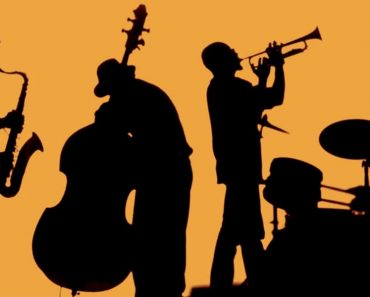Savina Yannatou, Primavera en Salonico, Lamia Bedioui – Watersong (ECM 2773, 2025)
On Watersong, her superb fifth release for ECM, remarkable Greek vocalist Savina Yannatou sets sail into an ancient, ever-shifting element: water. Both life-giver and destroyer, water becomes a metaphor, a medium, and a versatile form of expression in this mesmerizing, masterfully crafted cross-cultural meditation. Here, Yannatou and her long-standing stellar ensemble Primavera en Salonico, joined by gifted Tunisian vocalist Lamia Bedioui, offer a musical map where eastern and western Mediterranean currents meet desert winds, and traditional laments flow seamlessly into improvisational modes.
The album’s point of departure is Shakespeare’s The Tempest, and more specifically Ariel’s haunting song “Full Fathom Five,” which imagines transformation through submersion. Yannatou’s interpretation of the 17th-century melody composed by Robert Johnson is characteristically fearless; her voice exceptionally expressive and pristine, allowing the mystery to seep through. Around her, the ensemble conjures atmosphere and elegance with tactile sensitivity: Dine Doneff’s bowed waterphone shimmers like spectral surf, while Harris Lambrakis’s ney flute floats like sea mist.
The power of Watersong lies in its ability to evoke a sense of place, and many places at once. Yannatou traverses languages and lineages with rare fluidity, drawing from Greek, Cypriot, Corsican, Irish, Spanish, and Italian sources. Her voice doesn’t merely interpret; it inhabits these diverse worlds, weaving itself into the cultural memory encoded in each piece. And yet, the album never feels like a museum tour. Rather, it’s alive with risk, breath, and intuition.
A vital new presence here is Lamia Bedioui, who first appeared alongside Yannatou on Terra Nostra two decades ago. Their voices, while strikingly different in timbre, Yannatou’s airy, intimate and precise, Bedioui’s deeper and earthier, intertwine with an ease that speaks to long mutual trust. “I am able to improvise over her vocals,” Yannatou has said. “Our voices are very different, but fit together well.” That dynamic plays out most powerfully on the closing suite, where the African American spiritual “Wade in the Water” is juxtaposed with the Egyptian traditional song from Aswan, “Allah Musau (God of Moses),” a song about the baptism of newborns in the waters of the Nile. Both songs, grounded in themes of deliverance and divine reckoning, are reimagined as urgent, living prayers.
Elsewhere, Bedioui brings fire and finesse to “Naana Algenina,” a song from Aswan that celebrates the wonderful scent of mint. It opens into a Balkan pathway with the North Macedonian “Ivana,” where water may quench thirst or has some other shady purpose.
In “Mawal,” Davina takes center stage in an evocative setting of a 10th-century Arabic poem by Abou Firas al-Hamdani, with music originally composed by Iraqi legend Nazem El Ghazali. It’s a moment of awe and temporal suspension, where text, tradition, and timbre blur into something elemental.
Two beautiful, deeply captivating songs from Spain, “A los baños del amor,” and “¿Con qué la lavaré?” take Savina’s gorgeous voice to the western Mediterranean’s shores, combining Early Music chamber sounds with traditional folk instruments. “A los baños del amor” seeks baths as a place to relish love or seek comfort from sorrow. Meanwhile, on the emotive “¿Con qué la lavaré?”, a woman ponders how to wash her face to remove pain and sorrow.
Primavera en Salonico remains one of the most subtly adventurous ensembles working at the intersection of folk, classical, and improvised music. Formed in 1993 to explore Sephardic song under the guidance of arranger and kanun virtuoso Kostas Vomvolos, the group has since developed a shared language that transcends genre. Vomvolos’s theatrical background lends cinematic structure to each piece, while the ensemble’s musicians, violinist Kyriakos Gouventas, oud player and luthier Yannis Alexandris, bassist Michalis Siganidis, and flutist Harris Lambrakis, each bring deep ties to regional music traditions alongside exploratory instincts.
Savina Yannatou’s own evolution is inseparable from this journey. A classically trained singer who gained early fame in Greece through collaborations with Lena Platonos, she has long balanced historical inquiry with improvisational daring. Her work with artists such as Peter Kowald and Barry Guy in the 1990s opened new expressive possibilities, many of which surface in Watersong as wordless textures, tonal deconstructions, or daring vocal leaps that sidestep ornament for something more elemental.
Musicians: Savina Yannantou on vocals; Lamia Bedioui on vocals; Kostas Vomvolos on kanun, accordion; Harris Lambrakis on ney; Kyriakos Gouventas on violin; Yannis Alexandris on oud; Michalis Siganidis on double bass; and Dine Doneff on global percussion.
Watersong was recorded at Sierra Studios, Athens, in March 2022. The album was produced by Manfred Eicher.
Track Listing:
1 The Song of Klidonas (Traditional – Kimonos, Greece) 02:43
2 Naanaa Algenina (Garden Mint) / Ivana (Traditional – Aswan, Egypt) 06:42
3 Ai Giorkis (Saint George) (Traditional – Cyprus) 02:59
4 A los baños del amor (At the Baths of Love) (Anonymous – Spain 16th century) 03:59
5 Perperouna (Traditional- Thrace, Greece) 04:11
6 ¿Con qué la lavaré? (With What Shall I Wash it?) (Anonymous from El Cancionero del Duque de Calabria, 1526-1554 – Spain) 03:15
7 Sia maledetta l’acqua (Cursed Be the Water) (Anonymous – Southern Italy, 15th century) 02:21
8 Mawal (To the Mourning Dove, I Said) (Nazem al-Ghazali, Abu Firas al-Hamdami, 10th century) 03:54
9 Kalanta of the Theophany (Traditional Greek carol) 04:10
10 The Immortal Water (Traditional – Asia Minor Greek) 04:46
11 Full Fathom Five (from The Tempest by William Shakespeare, music by Robert Johnson, 17th century) 03:03
12 An Ròn (The Seal) (Traditional – Ireland) 02:20
13 O onda (O Wave) (Ghjuvan-Petru Lanfranchi – Corsica) 04:40
14 Wade in the Water (Traditional African-American spiritual) / Allah Musau (God of Moses) (Traditional – Aswan, Egypt) 07:23
Buy Watersong.
Author: Angel Romero
Angel Romero y Ruiz has dedicated his life to musical exploration. His efforts included the creation of two online portals, worldmusiccentral.org and musicasdelmundo.com. In addition, Angel is the co-founder of the Transglobal World Music Chart, a panel of world music DJs and writers that celebrates global sounds. Furthermore, he delved into the record business, producing world music studio albums and compilations. His works have appeared on Alula Records, Ellipsis Arts, Indígena Records and Music of the World.







